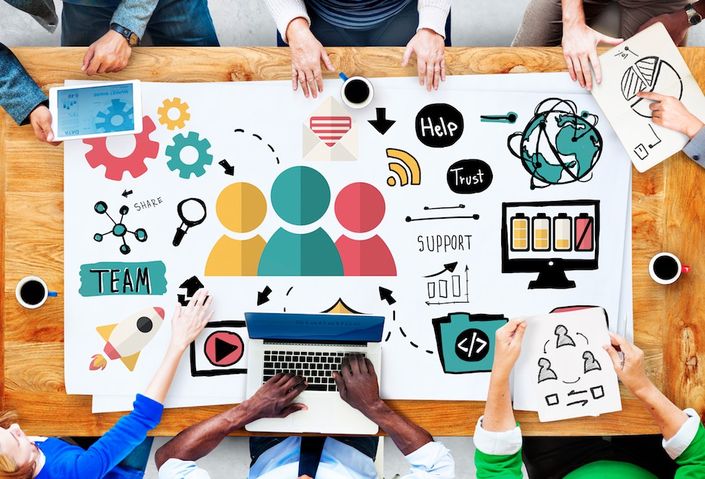
Facilitation Training Online Workshops
Innovative facilitation training online to help you design and facilitate for engagement, learning, & innovation remotely or onsite
Access ProgramPrograms Included with Purchase
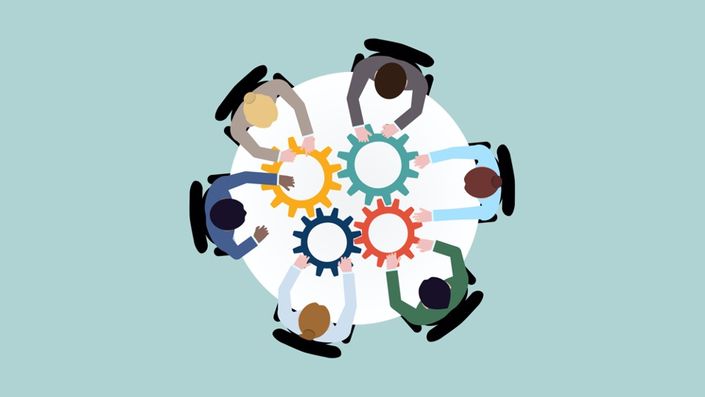

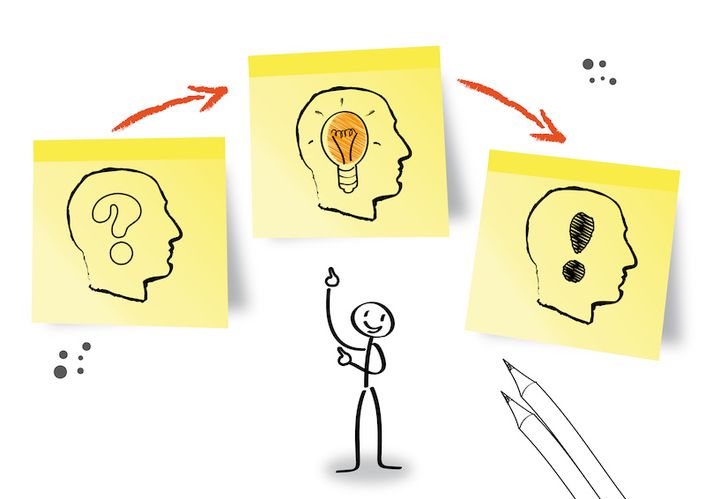

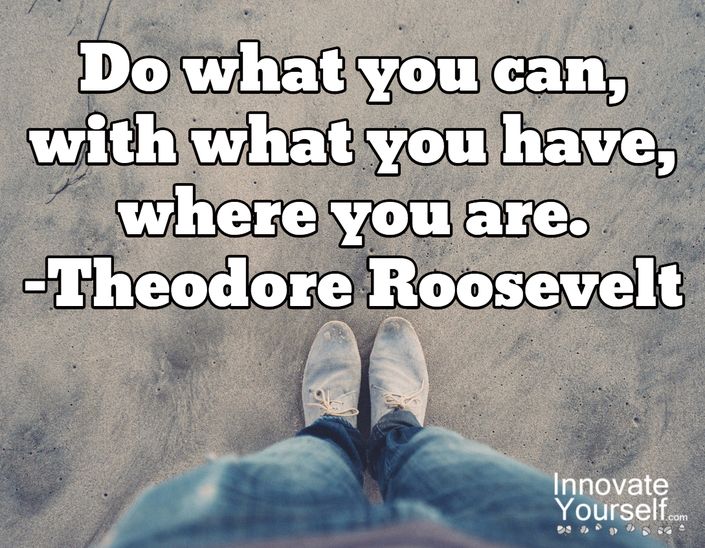

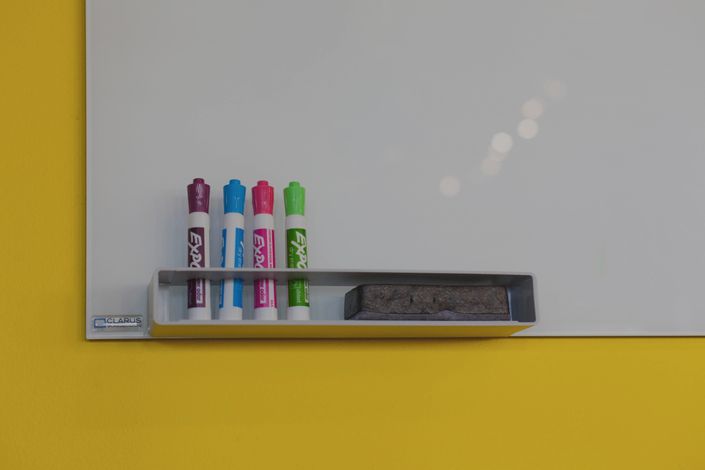

Original Price: $438
Get started now!
Facilitation Training Online Workshops
Do you do presentations, speeches, lead meetings, workshops, teach a class or design training for others? Do you want to innovate how you do this for better results? Do you want to do this in a way that is less stressful, more effective, and easier for you and more engaging and learning filled for your audience?
When I began my career I wanted to be a "motivational speaker." I wanted to inspire audiences and help them to learn and develop their own leadership skills. I even went so far as completing a Ph.D. program from the #1 ranked educational leadership department in the US so I could learn as much as I could about how to design programs to help people become better leaders.
I was surprised to find that research on effective learning didn’t match what I was doing with a focus on speaking. The research showed that when people just listened to a speaker, little learning happened much less remembering what the speaker said. Here I was telling my audience things I’d read in other people’s books while they could just read these books themselves! I used text heavy Power Point slides and bullet pointed ideas I’d read in other’s books! Even while I was discovering that people learned and developed their skills when engaged in real activities, having communication and reflection with others, and working on real projects for real purposes…I wasn’t doing these things myself when I was in front of an audience. I was still stuck in the old lecture style “sit and get” way of thinking!
As I began in-depth research for my dissertation, I interviewed stakeholders of some of the most high-impact leadership development programs in the US. From over 60 learning leaders, I heard firsthand the types of program activities and experiences that most impacted their leadership development and lives. It wasn’t the "sit down and shut up" lectures they heard but the activities, the projects, the relationships, the reflective experiences that most positively affected them.
Then I finally understood and took action. Now I knew that I had to change how I did my own speaking events, workshops, classes, and meetings because I’d heard it face to face from so many people. I needed to shift from lecturing to facilitation. It was a little uncomfortable for me to cut out so many of my great tips and instead, have my participants connect with each other to do activities that I would design and facilitate.
This was a big change to how I operated in the past. Change can be a little scary...even if it benefits you and others! However, after getting into it, I discovered that I really enjoyed the design of meetings, keynotes, workshops, classes, and activities more than I enjoyed scripting speeches and trying to get all the right text on each Power Point slide. I (and my audience) preferred the improvisational nature of facilitation more than trying to remember the exact words to say and saying them to the group. Most importantly the “fear of public speaking” anxiety went away with this new and innovative way because the focus wasn't on "public speaking" anymore...it was engaging your audience in activities using simple facilitator tools and techniques.
This was my first big major shift in my career with how I help people to learn, develop, and get the motivation and mindset to take action. It took me some time to change but I’m glad I did. Over 1 million people have gotten the chance to experience activities I’ve designed for others to facilitate or facilitated myself. This wouldn’t have been the case if I didn’t gain awareness and learn simple tools, techniques, and activities I could easily design my sessions around and facilitate. I would like to train you on these methods! I've put together my favorite tools, techniques, and activities for you in this short program. You don't need to do a 7 year Ph.D. program like I did...just get started by learning the most important insights and the practical tools and activities you can use now in just a couple of hours.
Facilitation Training Online or Onsite Workshops
Do you want to do this workshop as a group or have Darin on-site with your audience? We can also help with with a very deep and transformational facilitator training program or course ranging from 1 day to 5 days in length. Email me at Darin (at) DarinEich.com.
Your Instructor

Darin Eich, Ph.D. is an innovation training workshop designer, design thinking training facilitator, keynote speaker & the founder of InnovationLearning.org. His speciality is designing and facilitating high-impact innovative leadership programs. He is also the author of
Innovation Step-by-Step: How to Create & Develop Ideas for your Challenge and Root Down & Branch Out: Best Practices for Leadership Development Programs.
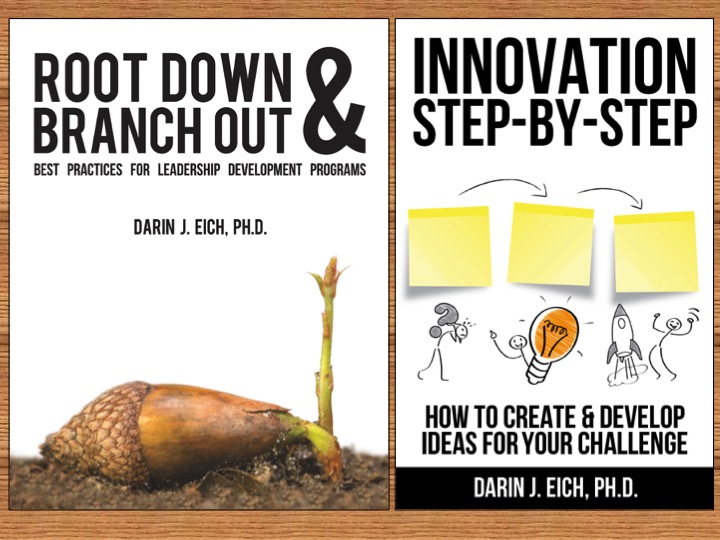
Darin's passion involves helping people to become themselves, find and live their strengths, and become more creative, innovative and successful leaders. Darin is a conference keynote speaker and helps institutions develop leadership programs & retreats. He also facilitates professional brainstorming, facilitation training, and innovation sessions for large organizations.
A variety of organizations listed below have utilized Darin's innovative facilitation, consulting, keynotes & workshops, and leadership development programs for training and innovation. Our programs and expertise have also been featured in various media publications.

Get started now!
Facilitation Training Online Workshops
What do people learn from the training workshops on facilitation tools and techniques? Read some of the reflections and comments we've received to learn what people found helpful and are taking action on in the sessions they lead.
"What a helpful series of presentations! I shall SO (evaluate the STRENGTHS of my program and the OPPORTUNITIES to improve) use these devices when creating my tier two project. I had no idea people retained 10% of what they read after 2 weeks, but 90% of what they both saw and participated in. The three methods of communication- verbal, para-verbal, and nonverbal, are helpful to identify so as to aim for an eighth grade speaking level, exude an engaging persona, and possess confident body language. The theory of multiple intelligences reminded me to incorporate a variety of techniques when presenting. Using nametags, polls, around the horn, brain-rain, think-share-pair, questionize, call-ons, free for all, objects, and reflections are now all “apps in my phone. Now I have the tools in my box to break my large groups into smaller subunits and help people feel comfortable. Thank you Darin!"
"I thought this online workshop was extremely interesting and informative about facilitating a group meeting or discussion. Each module was entertaining and easy to follow and learn from. I was able to relate the concepts discussed to my own experiences, such as classes and club meetings. I thought many of the tips about engaging members of a group were useful, such as always having members introduce themselves and using the reverse poll technique. I think both of these methods help members of a group to feel comfortable and share their thoughts and opinions. The brainrain brainstorming technique was also very interesting to me, as in many situations when I am asked a question and expected to respond immediately I refrain from answering as I prefer to think over my ideas first. I thought the idea of having a closing reflection was valuable as it helps members think over what they just learned and discussed and end the meeting feeling like they gained something through their time. Overall, I thought this workshop was great and I know I will be using this knowledge in the future."
"This group facilitation online workshop was very easy to follow, well-presented, and taught me a variety of new, creative ways to present a topic and engage my listeners. It gave me a better understanding of different types of communication- verbal, nonverbal and paraverbal- and how people learn differently- it’s important to adapt one’s presentation style to the group. This gave me ideas about to create meaningful meetings and how to keep everyone engaged. I also found the polls interesting because you, as the facilitator get to learn about your audience and what experiences that they have possibly been through. These tools all engage the entire group and would make for an awesome presentation."
"These modules were extremely fun to watch and engage with. No matter the capacity of leadership, these tools will be extraordinarily helpful to all leaders. I enjoyed learning about the theories of engagement, to better work with followers and fellow leaders. There are so many ways to connect and work within a team, and the information provided clearly shows (visually) the ways to effectively do this. Additionally, the tools provided were great methods of engagement, and I look forward to trying many of them out. Experience as a leader, from a camp counselor to a club president, force you to utilize these concepts to better effectively achieve your vision with your team or group. These tools are incredible examples that all for many jumping off points, from more creative ice breakers to more advanced engagement activities. What I am most excited about it how I can now take these tools and concepts to get as creative as possible with my group facilitation."
"These modules taught me how important it is to make a workshop engaging especially due to the Cone of Learning diagram that stated an individual will remember 90% of what is presented after saying and doing compared to only remembering 10% after only reading the material. I am eager to implement cooperative and interactive activities in my workshop as to reinforce my material as much as possible. Specific “tools” for engagement like reverse polls, think-pair-share, and using props in stand-up activities will certainly help in this aspect. I also now understand to speak in very simple terms to get my points across and to pay attention to my verbal, paraverbal, and non-verbal expressions during my workshop because much more can be implied through intonation and body language versus what is only explicitly stated in an exchange. Lastly, I plan to use the facilitated closing reflection in my workshop because several perspectives on my workshop’s concepts may help drive my information home to more audience members compared to only myself giving a reflective summary. These activities combined with creating a welcoming environment to share ideas will lead groups to making a high impact in their own lives and others as well."
"These mini videos were extremely helpful. My main take away from these workshops was that good workshops have a variety of techniques to get the audience and lecture-er to interact. As I am preparing to have my own roundtable discussion I have gone back to make sure I did not use only one facilitation technique, but many to make sure the audience is engaged the entire time. I am not fully confident in my presenting skills but this definitely makes me feel more confident in the options I have to present."
"Group presentations have a tendency to be very boring if done the wrong way, and by using some of the tools presented in this workshop I can make sure that when I have to present to a group I can get everyone involved and interested. I thought the reverse poll was incredibly interesting because it made sure that everyone is involved in the discussion from the very beginning. By having everyone stand up the reverse-poll is able to create a more laid-back atmosphere because everyone is included, and it also gets rid of the fear that some people may have of being singled out within the presentation."
"I really enjoyed the different methods to get everyone involved, like think-pair-share and around-the-horn, that the online workshop presented to me. The Cone of Learning showed how to effectively present topics that people will remember for extended periods of time, and the last module stressed the importance in getting people up and moving, which relates back to the Cone. The Cone shows that people tend to remember ninety percent of what they say and do, so I will keep that in mind and really try to get people actively involved when I present my workshop. I also liked the idea of using strategies of multiple intelligence when presenting to reach all of the different kinds of learners. The Situational Leadership Theory chart was also helpful in that it visually depicts how to create a high impact group—how you must be both task and people oriented to create an atmosphere where the group does succeed and impact the world around it."
"This online workshop helped expand my awareness of the different techniques to use when leading a group. I am strong visual and interpersonal intelligent, which I did not think about before. The chart helped me to visualize all of the different learning techniques. As an ice-breaker in my workshop I am going to use name cards with pictures to connect individuals to the task at hand. As well as an interesting way to learn names. It takes me a little while to learn names and this is a great way to get everyone involved. I can also relate to the increased engagement in smaller group settings. In my big lecture classes it is hard to get input, as opposed to my smaller twenty person classes. I will definitely integrate the brain rain and pair-and-share techniques into my workshop. It is easier to give you input when you have collected your thoughts first. I can’t wait to put my the skills I have learned into action!"
"These modules were incredibly informative on how to better facilitate group workshops. After participating in multiple workshops, it was interesting to learn about how to make a more effective presentation by not only focusing on the content but also the way it is presented. Learning how different people can be engaged through different kinds of activities was the biggest thing that I learned through these videos. I now know how to better understand my group and how to get them excited and engaged using these techniques and activities. I never thought there were so many options to get a group involved. I look forward to applying the skills and knowledge I learned from these videos into my workshop to engage the audience more effectively."
"This video series set a lot of new light for me on the technical aspect of facilitating a group. For example, I did not think of getting a group to be more comfortable as a series of tools and processes. I thought it was something that just kind of happened. I also did not think about the different learning and styles of people and making different aspects of my presentation have activities to suit everyone’s needs. I really liked the call-on activity to get group members engaged."
"The workshop was effective to me because I learned some useful strategies that I never knew existed. I am usually good in a public speaking and presentation setting so the details I was unfamiliar with will be effective in my approach. I am giving a workshop presentation on Conflict Resolution later this month and the format used such as the pyramid and the axes for the concern for task are actually already in my presentation slides. One of my fears for giving the presentation WAS that I would be too focused on the content and the detail and this workshop has given me some inspiration as to how I can make the workshop more interactive and less of a lecture. I was thinking about using skits and role playing in my workshop but now I AM using skits and role playing. By making the group interest higher with these methods I am already more confident by the reaffirmation that I have received about the techniques suggested by the workshop."
"This video series was very helpful. It gave me a look at different approaches to lead group facilitations. I am leading a round table discussion soon and it was good to see different ways to approach this facilitation to be able to make it more interesting to my audience. This presentation helped in all the different aspects of a presentation from body language, to activities, to a closing reflection. Some points that I thought were very cool is the different types a group can talk about a questions. Around-the-horn vs. Brain Rain vs. Think-pair-share vs. call ons. These are all very different ways people can share what they are thinking about during your presentation that I would have not thought about. All of this information that was presented is going to be very helpful for when I do my facilitation of a round table discussion. Thank you for this presentation!"
"This workshop is so helpful in showing how to improve presentations. Previously, when I would try to make my presentation better, I would look at how I can change how I conduct or portray myself. These videos show that it isn’t solely the details about oneself that they have to focus on, but the main concern to a presenter should be about how everyone else is reacting to the content and to each other. It is crucial to create an atmosphere where people are comfortable, are getting along, and are able to “say and do” activities so that people are able to remember the information. Or they should be up and moving, and having a good time for the point to get across well, and for the group listening to be enjoying themselves."
"These modules were incredibly helpful as I prepare to facilitate my own solo session soon. Even elements of presentations as simple as introductions were broken down into theories, which taught me a surprising amount. It was interesting to put into perspective just how much impact tweaking one portion of a presentation can have on the audience. One part I found particularly useful was the piece in Module 1 about the different types of learners. As presenters we typically forget that everyone learns in different ways and at different speeds, so this was helpful in showing how to facilitate so that everyone can retain as much of the information as possible."
"This was an exceptionally insightful video series. I never really bothered to sort through what was and wasn’t effective during previous lecture presentations. I found the percentage breakdown of how much information we retain to be the most interesting part of it all. I was only recently discussing how I felt I wasn’t retaining enough of the information from my lectures and it suddenly clicked that the parts I did understand the most had a lab component as opposed to just lectures. I hope to use this concept to ensure maximum retention of the information presented. The ideas of using polls and the think-pair-share techniques where my favorite of those presented and I will likely use them. Ice breaking would be made much easier by the think-pair-share technique as it gradually involves more and more of the group."
"Awesome video series! I am so excited to put the points of this video into practice. Lecture presentations are usually so boring but this series pointed out what good lectures I have experienced did RIGHT. I am going to use role play and reverse polling in the lecture portion of my workshop this month. I can’t wait to plan my workshop now that I have these tools; they are going to make it so much easier to communicate my points."
"There is nothing worse than going into a lecture or a small group and being completely bored and not focused on what is going on. I know my mind tends to wander quickly when I am not engaged. This does not allow for effective listening and learning. Out of all of the training I have been through, I can say that most of them were death by power point, and maybe, time permitting, we do some hands on. I want to learn more about the Multiple Intelligence Model and into which category the hands on people would fit. To me, that is one of the best ways to master something relatively quickly. Most of my experiences also involve the group where they all have the same interest or knowledge, so it helps to be on the same page. I look forward to providing a group discussion with an audience that may not be as familiar with the topic like my previous groups. I will certainly be using the introduction to help people feel more comfortable. During all of my workshops, I have always reflected, during and after, on the material discussed. I can say the same for this online workshop as well. My reflection for this workshop is that sometimes you have to go against what is expected in a “professional” discussion,(e.g. sitting down, taking notes, asking questions) and trying out your own techniques which helps to engage the audience. There is no better feeling than when the audience has the energy level of the group facilitator. I look forward to stepping out of my comfort zone and having others do the same while getting to learn about new and exciting topics."
"This video series definitely gave me some great advice on how to plan and facilitate my workshop. While planning it, taking into account my nonverbal and para-verbal actions will definitely allow me to appear more confident in the material I am presenting, and do so in a much more engaging manner than simple lecturing. Being a more visual learner myself, having different means of presenting the material beyond a basic power point presentation would be a helpful thing for me and knowing that a lot of students learn differently, having a well balanced workshop will help keep everyone engaged and allow me to get my main message across to them. I plan on utilizing some of the tools and activities you mentioned, such as polls and around-the-horn discussion, by doing so allowing everyone to contribute to the conversation and hopefully get everyone to take away something meaningful from the workshop. The main thing I would take away from these videos is to diversify the workshop. Sitting through many workshops before, keeping the audience engaged is the most important way to get your point across, and you have given some great tips on how to do so. I look forward to using these techniques to make my workshop as useful as possible!"
"I found this workshop to be very rewarding and stimulating for me. I came into this workshop a little wary of my abilities in group facilitation, but now that all the tools have been laid out and explained to me, I feel much more confident in what I can accomplish in this environment. A large number of the points here will be pertinent to me for my roundtable discussion requirement of Advanced Tier 1 in the near future, and I’m looking forward for the opportunity to use them. Looking back on many of the workshops I attended this past semester, I can recall the effective usage of many of the tools discussed here, which helped make them such memorable experiences for me. One example of this is stand and move, which was a very useful method of putting what was taught into practice in a unique way, just by changing the configuration of everyone in the room. Another tool that stood out to me was the personalized nametag, and its effectiveness in turning people into individuals. I find this to be key in the relationship building of group facilitation. I also agree with the idea of smaller groups finding greater success in discussion based learning and bonding, in comparing the environment of a few hundred student lecture hall compared to a 25 student classroom. I found the visuals to be very useful guides to showcasing the importance of such facilitation and its tools. The cone of learning stood out to me especially, as it was helpful way of showing how some methods of communication can leave a much more powerful impact on others in the long term. Another useful visual was the chart explaining the importance of balancing people and task-oriented frames of mind. In conclusion, I found a ton of value in this workshop, and cannot wait to put my newly acquired tools into practice."
"I gained a lot of valuable insight through these videos- I found myself wanting to write almost everything down! One of my biggest takeaways, though, was the point about playing to your individual strengths when designing a facilitation (in my case, a roundtable discussion). The group facilitator is a huge part of the group itself, so he or she should definitely think about personal strengths and weaknesses when leading a group, while also trying to address the many learning types present. I know one of my strengths is motivating others, while one of my weaknesses is “following the rules”. Through my roundtable discussion, then, I will call upon my ability to motivate others in order to encourage interest in my topic, while perhaps also striving to recognize the need for an order in my plan. Thank you so much for encouraging such self-reflection! I can’t wait to put what I learned into practice."
"This video was the perfect lesson on how to engage your group and generate discussion. I love the idea of creating a comfortable setting, developing relationships between group members, and driving the task and focus of the presentation home. The point of using experiential learning was very important to me, as I am an enthusiast of improvisational and team building activities which enable the group to learn a lesson through working together. I was happy to find that many of the ideas you had shared were ones I have been successful using while presenting. I look forward to using all the new techniques I have learned today as well. Thank you very much for empowering myself and others as facilitators!!"
"I plan on using Around-the-Horn to get conversation flowing and Think-Pair-Share to let the participants synthesize their ideas more. I will also have my participants make name tags in order to promote a healthier discussion and to build bonds.
I also very much enjoyed Darin’s point on how people all learn differently. This is something very interesting to me because I am an Art major so I completely understand that people need to learn through different activities. I think more discussions need to realize this fact."
"I tried to incorporate a lot of tools from this workshop. I am posting after my discussion so that I can reflect on how these tools worked. I used the idea of making name tags and it really broke the ice and got the members of the group to start talking. Each of the modules had several interesting ideas. I tried to focus on communicating with the group using all three methods of communication and to make the conversation engaging. Working with groups effectively is a huge part of leadership."
"I really enjoyed this workshop. I will definitely be using the different skill groups to reach everyone in my group projects. This gave me ideas about to create meaningful meetings and how to keep everyone engaged!"
"I think that these modules were very interesting and extremely helpful. All people are individuals and this plays a large role in working with others as well as getting everyone on the right track. Being able to communicate effectively is the main point I took from this, and it allows people to work well in groups."
"The hardest thing about working with a group of people is that we are all different. We are intelligently different. I knew of individuals that were visual, verbal, or body learners but I never knew of interpersonal, musical, logical, or intrapersonal learners. This is very useful for groups because it allows leaders to incorporate a little of each skill in group activities so everyone can benefit. As leaders we need to start saying AND doing more!!"
"This workshop gave me great ideas on how to create meetings and actually talk to them. Communication is key and I have to remember that in a group no matter how small there will still be different opinions. It will be hard to keep everyone on the same page and I’m going to have to adopt a certain style of communication to keep everyone engaged. The different workshops not only gave me tips on how to do so, but it took some of the stress I was feeling away. Once again thank you so much."
"This was a different way of looking at how to work with groups and the people in them. These techniques will definitely help me out when I am a RA next year for the first time. I will have to facilitate meetings and get my residents involved in them, and I learned many tips to help me out. This was a very interesting workshop, and it seemed to go by really fast! I enjoyed each module, and I got helpful hints for each one. Thank you very much for taking time to give this great workshop."
"There was good information on how to work with individuals or groups, and the group facilitation exercises are interesting. It gave me a better understanding of different types of communication- verbal, nonverbal and paraverbal- and how people learn differently- it’s important to adapt one’s presentation style to the group. In addition, there was important information on how meetings should be planned for and run. Once you lose the attention and interest of a group of people it can be difficult to get it back, you must actually engage the audience, not merely present at them. Part of this is challenging people, using their creativity and group discussions to keep them involved."
